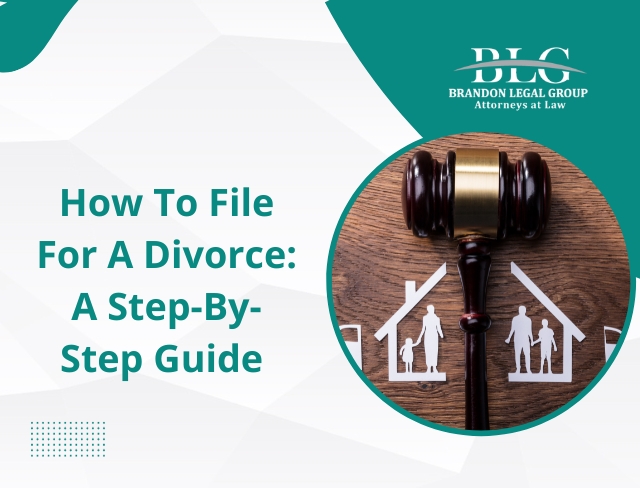Navigating the Complexities of Divorce
Divorce is challenging but, understanding how to navigate this process is helpful for anyone facing this situation. In this guide, we will walk you through the essential steps of filing for a divorce, aiming to provide clarity and support during this difficult time. This guide aims to shed light on the steps involved, offering clarity and support to those embarking on this journey.
Understanding the Divorce Process
The process of filing for divorce varies based on individual circumstances and state laws. It typically begins with one spouse filing a legal petition and serving it to the other. This guide aims to simplify the legal terms and procedures, making the divorce process more accessible.
Types of Divorce: Contested vs. Uncontested
A crucial distinction in divorce proceedings is between contested and uncontested divorces. In an uncontested divorce, both parties agree on major issues like property division, child custody, and support. A contested divorce involves disagreements that may require more legal intervention.
Empowering Through Understanding the Divorce Process
Having a clear understanding of the divorce process can make a big difference. It can help reduce stress and lead to better decisions throughout the journey.
The following is a DRAMATIZATION AND IS NOT AN ACTUAL EVENT: Consider the fictional case of Emily and Mark. They approached their divorce with an understanding of the process, which helped them make informed decisions, reducing emotional and financial strain.
Navigating Legal Requirements and Documentation
Filing for divorce requires specific legal documents, including a petition for divorce and financial disclosures. Accuracy and thoroughness in completing these documents are crucial to prevent delays or legal complications.
Divorce in Florida: Navigating the State’s Legal Landscape
In Florida, the divorce process has specific legal requirements that distinguish it from other states. Known as “dissolution of marriage,” Florida law requires at least one party to be a state resident for a minimum of six months prior to filing. The state follows the principle of “no-fault” divorce, meaning that one only needs to cite the marriage as “irretrievably broken” without the need to prove wrongdoing by either spouse.
Florida law also places a strong emphasis on equitable distribution of marital assets. This means that marital property, assets, and debts are divided fairly, though not necessarily equally, between the parties. Factors such as the duration of the marriage, the economic circumstances of each spouse, and contributions to the marriage (including homemaking and child care) are considered in this division.
When it comes to child custody, known as “time-sharing” in Florida, the court’s primary consideration is the best interests of the child. Florida law encourages shared parental responsibility unless it would be detrimental to the child. This approach aims to allow the child to maintain a meaningful relationship with both parents.
Alimony is another critical aspect of Florida divorces, with several types available, including bridge-the-gap, rehabilitative, durational, or permanent alimony, depending on the circumstances of the marriage and divorce.
Understanding these specific Florida laws is vital for anyone considering a divorce in the state. Professional legal guidance is recommended to navigate this complex legal landscape effectively.
Dealing with Specific Circumstances
Divorces involving children, substantial assets, or cross-jurisdictional issues require special consideration. General advice includes focusing on the best interests of the children and seeking expert legal guidance for complex financial matters.
Offering Professional Assistance
Our law firm, Brandon Legal Group, specializes in handling diverse divorce cases. We provide personalized advice and representation, guiding clients through each step of the divorce process. Contact us for a consultation to discuss your situation and learn how we can assist you in this challenging time.
FAQs
1. How long does the divorce process usually take?
The duration can vary depending on the case’s complexity and the court’s schedule.
2. Is it mandatory to have legal representation for a divorce?
While not mandatory, having a lawyer is highly recommended, especially in contested divorces or those involving complex issues.
3. Can divorce terms be modified after finalization?
Some terms, like child support and custody, can be modified post-divorce if significant changes in circumstances occur.
Conclusion: Your Partner in Navigating Divorce
Filing for divorce is more than a legal process; it’s a life transition that requires careful navigation. At Brandon Legal Group we’re committed to guiding you through each step with expertise and compassion. Reach out to us today, and take the first step towards a new beginning.
